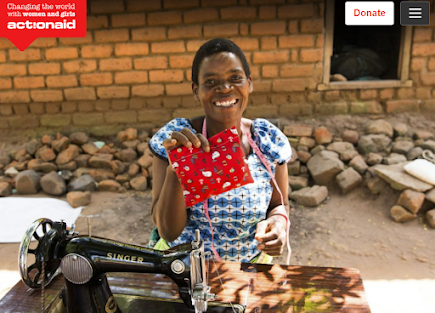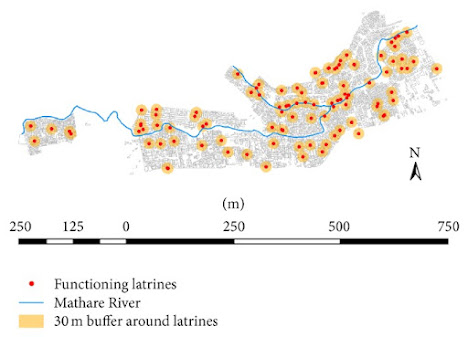Menstruation - a hope for the future?
My last blog looked at Women and the WASH sector, and this blog will follow on, by focusing on one aspect – menstruation – offering some hope for the future by tackling period poverty.
Menstrual hygiene management (MHM) can prove challenging for women and girls in low-income countries, where there is a lack of money and access to menstrual hygiene products (MHPs) as well as inadequate sanitation conditions to deal with their menses. Menstruation is a private matter that is rendered public, and hence there is a taboo that comes with it. This provides challenges for talking about it, and implementing change. Improving MHM starts with safe access to water and sanitation systems.
Adequate
MHM at school for girls can reduce absence,
increase concentration in class and lead to better life outcomes for themselves.
Without this, girls worry over public bleeding, having a private place to
manage their menses and having a place to dispose of MHPs (as described by one
girl ‘where
will we dump our pads after using them?’). This leads to absenteeism for
girls during menstruation. In Kenya, a girl loses 39 learning days in one academic year, affecting their economic potential.
There
have been various initiatives to increase access to MHPs and reduce period
poverty. In Kenya, The Sanitary Towels programme was launched in 2011, and has
provided over 14 million packets of sanitary towels to over 3 million
girls.
However, this programme only provided products to girls in public schools.
Girls in private schools more frequently reported menstrual strains and absenteeism from
school due to a lack of money for menstrual products. Furthermore, girls in
public schools had to request pads from their teachers, and
many felt uncomfortable doing so.
There have also been initiatives with reusable products (which are more affordable and sustainable) – seen as ‘leapfrogging’ in terms of MHPs. ActionAid Malawi have two projects. The first is providing training and resources to make reusable sanitary pads. Ruth, in Figure 1, a woman in Malawi, has been given a sewing machine and training through the project and she sews reusable pads and sells them at the market. Through this program over 3000 pads have been made and distributed to school girls. The second project is the distribution and education of menstrual cups. These can last up to 10 years and leave no waste. Lucy Nkhoma, of ActionAid Malawi helps break period taboos and educate girls about using cups. The result of the program has reduced absenteeism and helped girls feel more comfortable during their menses, as shown in the video in Figure 2. These reusable products mean that girls don’t need keep buying expensive MHPs (and risk having no safe MHPs) and they reduce the issues of MHP disposal. But they require water to wash, which may not always be available. Despite this, they are perhaps the future of MHPs, as they are a sustainable solution.
Figure 1: Ruth, from Malawi, sewing pads, through the ActionAid project
Education needs to come hand in hand with access to menstrual products, to empower women and girls to safely manage their menstruation. Several studies have showed that the quality of training and support have a high effect on the uptake and sustained use of cups. This support will empower women to understand and make informed choices about their MHM.




Comments
Post a Comment